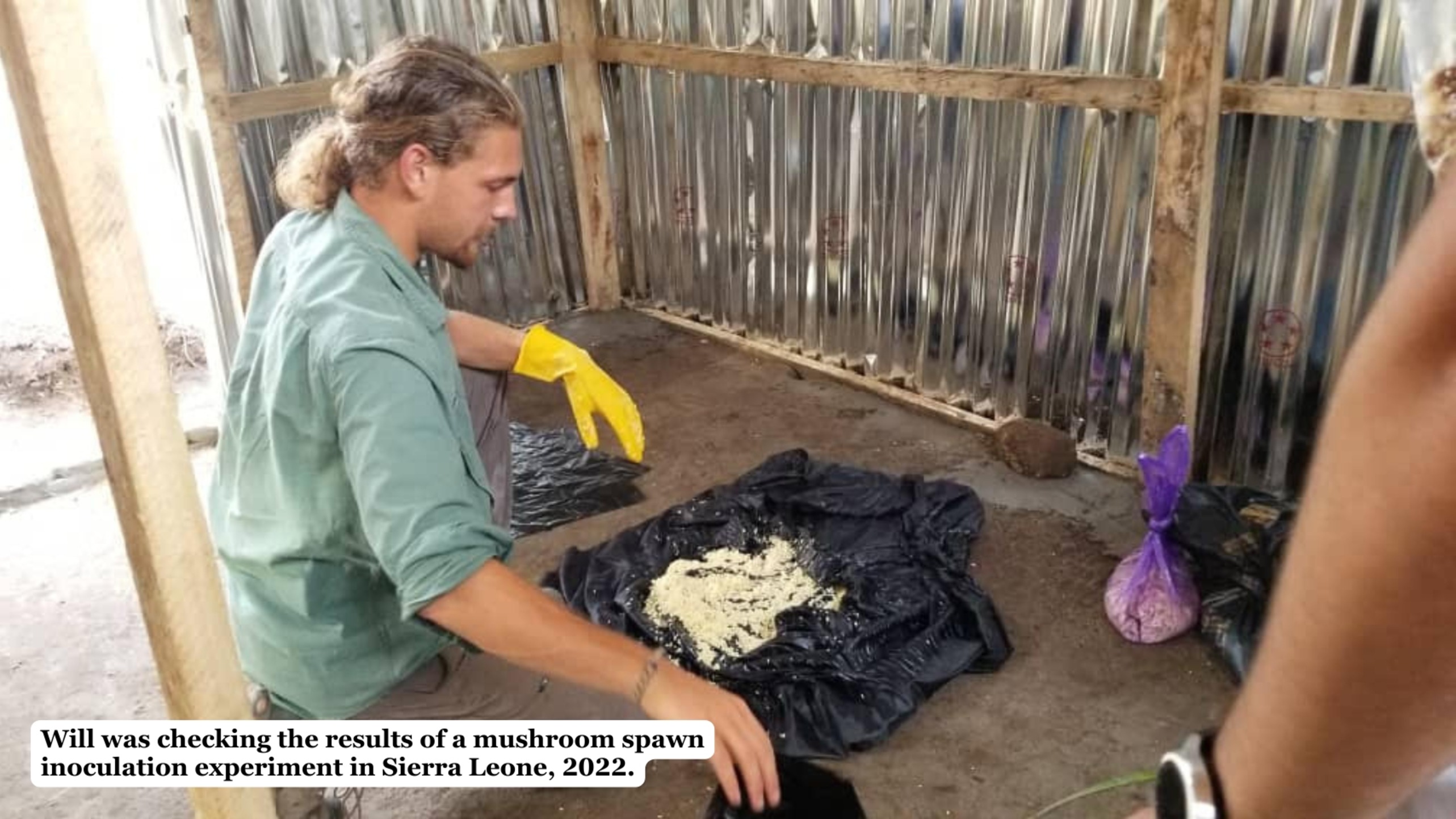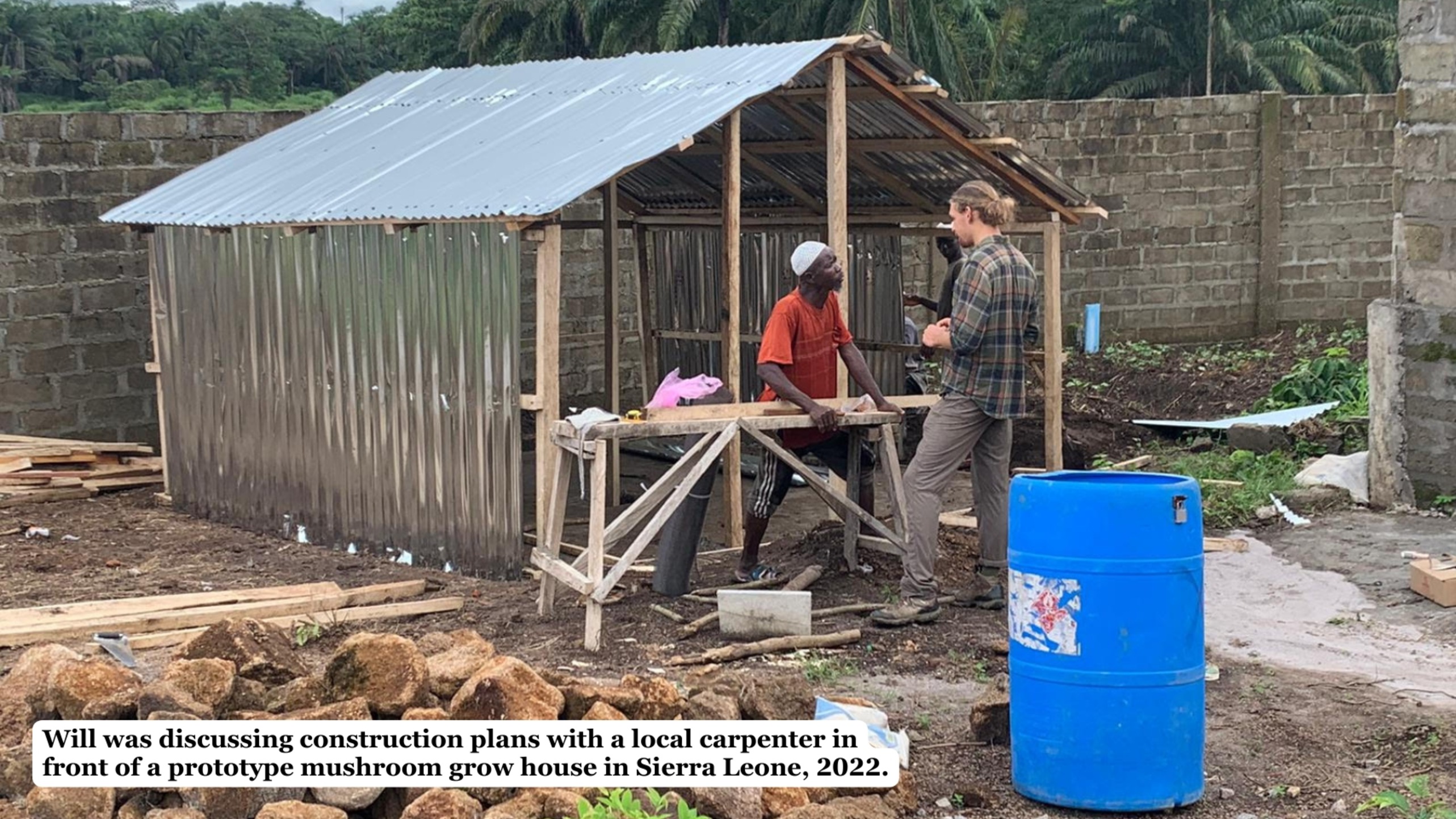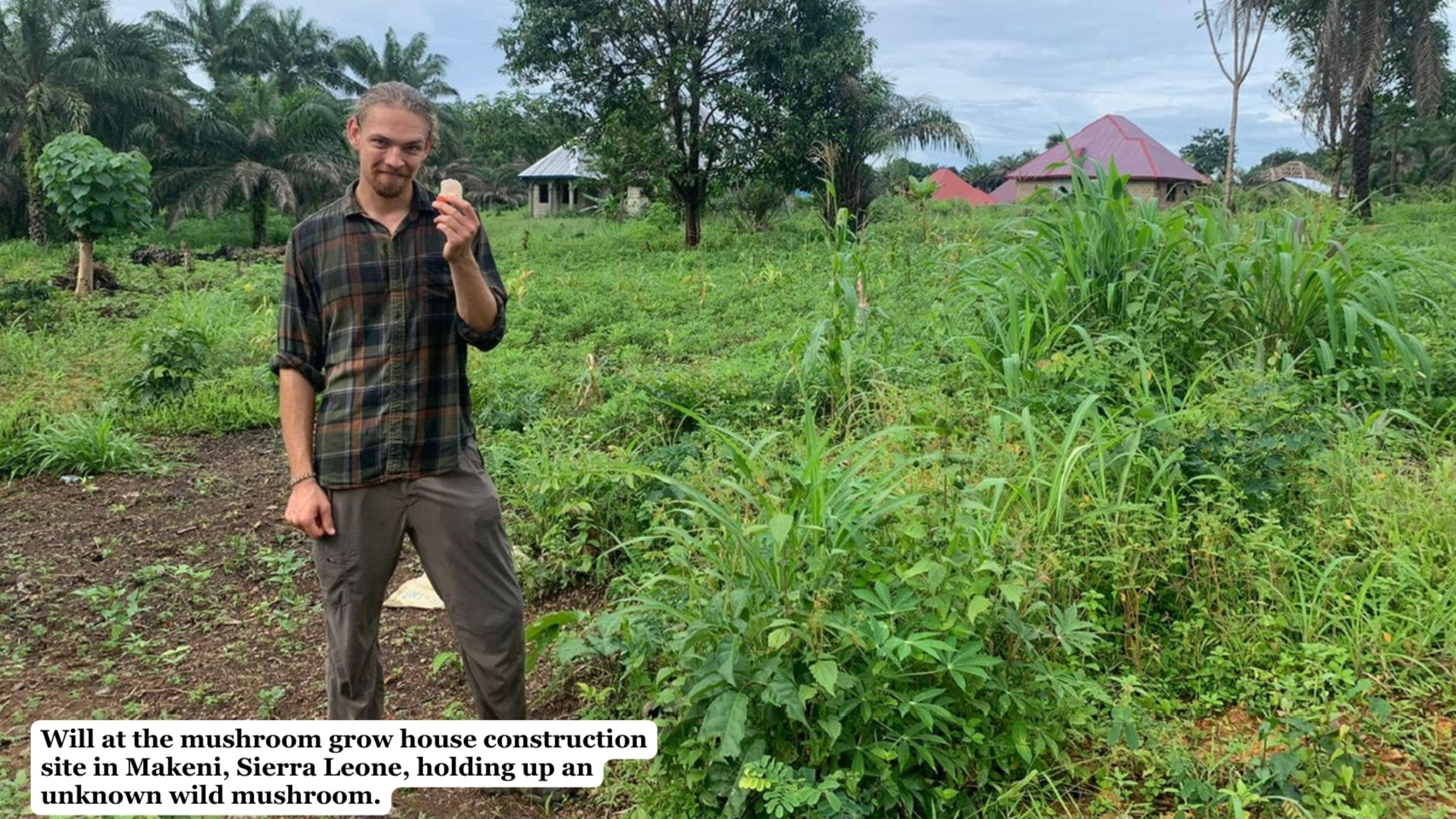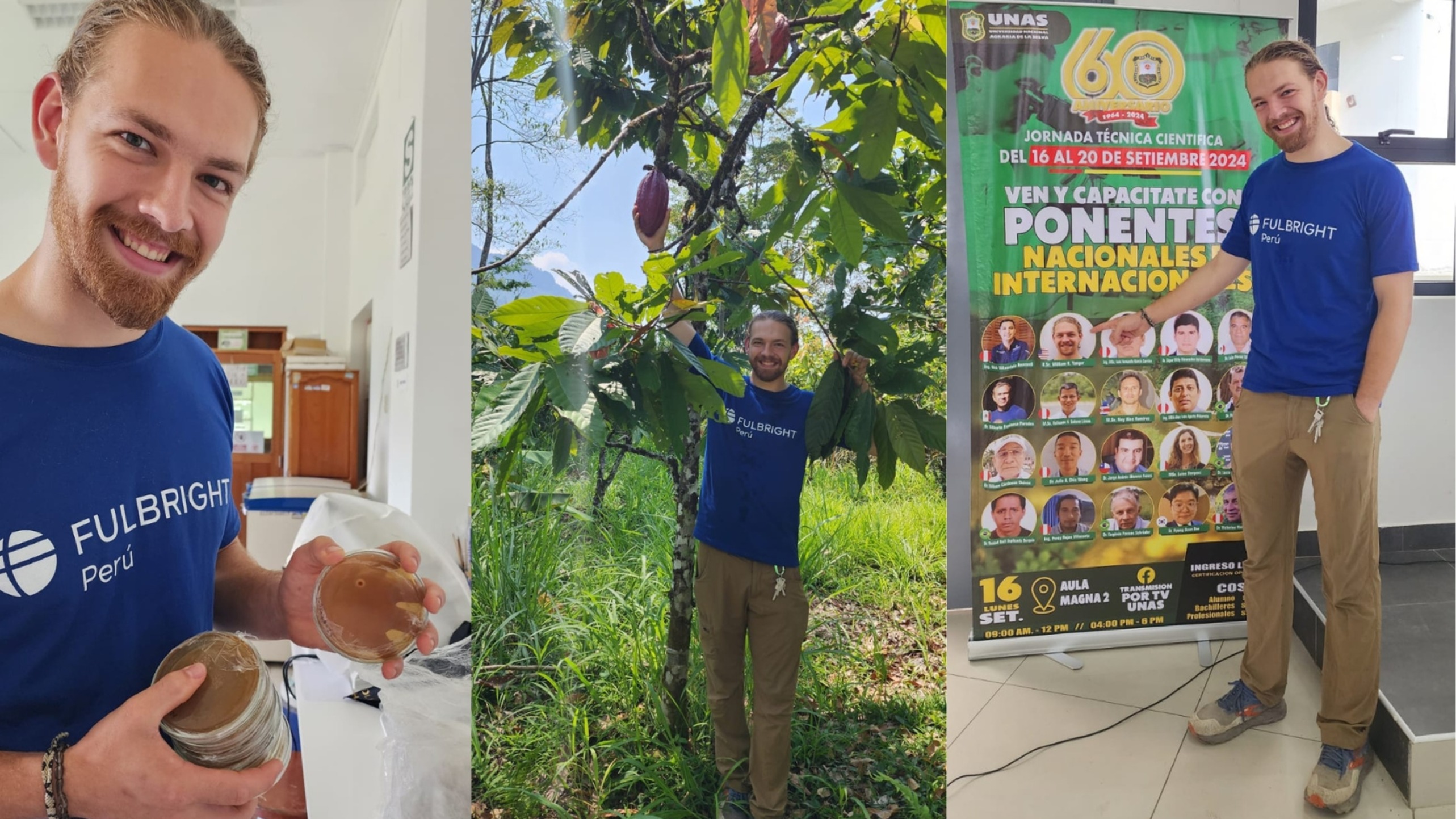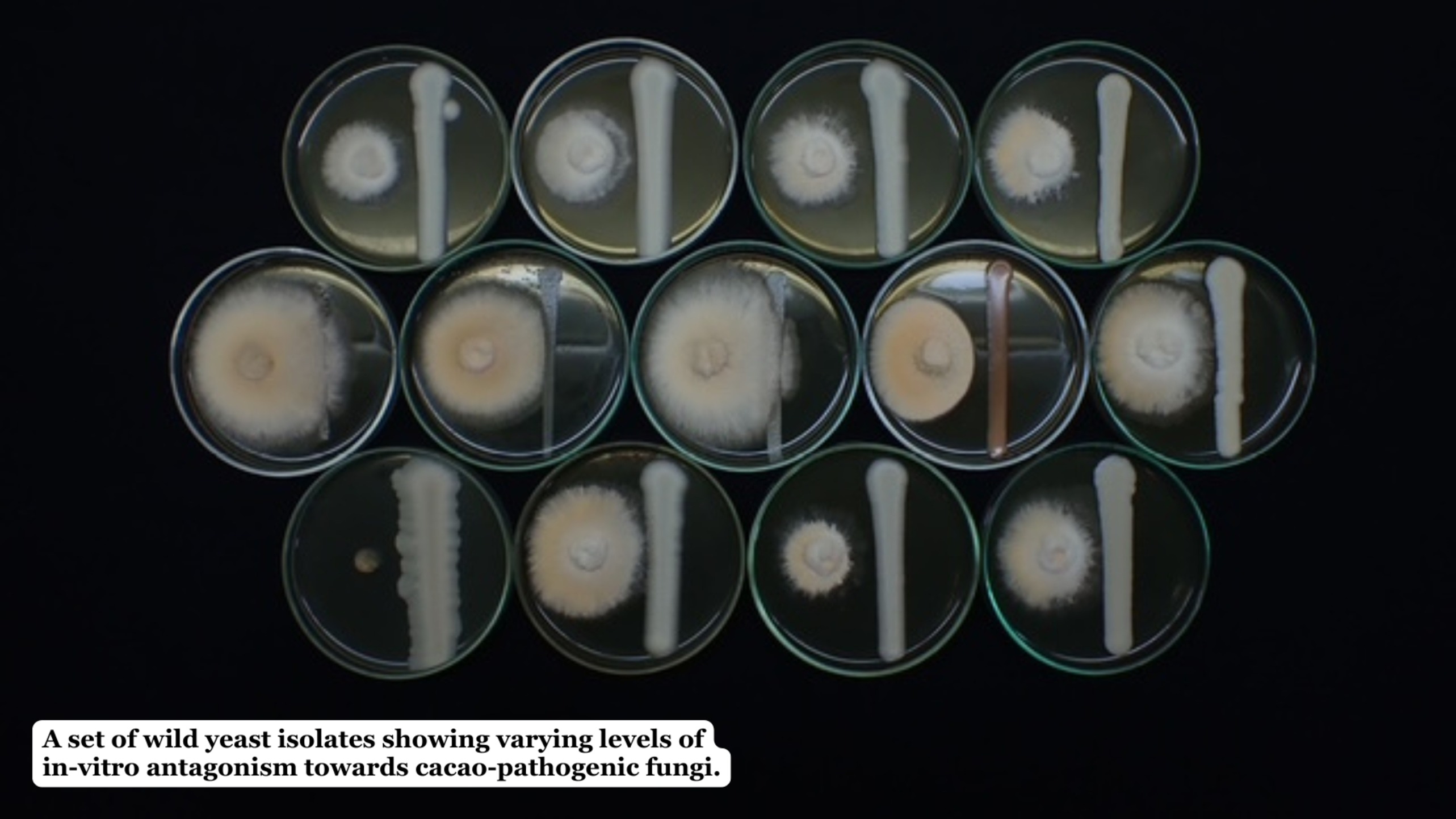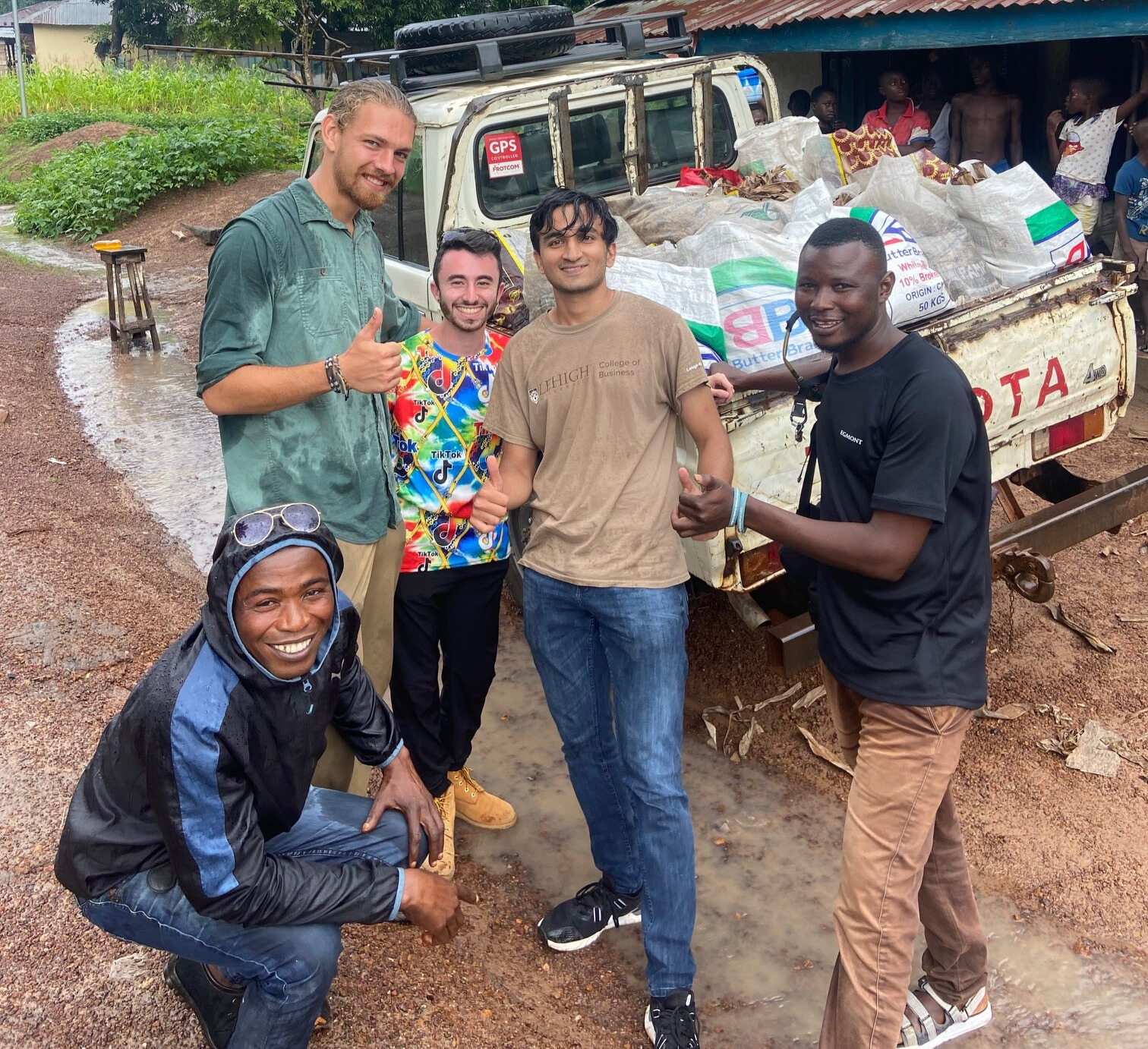
For Will Yaeger ’24, what began as a fascination with fungi has evolved into a journey across continents, research disciplines, and real, transformative impact in the world.
Yaeger’s path began in 2020 when he joined the Global Social Impact Fellowship (GSIF) program as a first-year student. Having developed an interest in fungi during the COVID-19 pandemic, he joined the GSIF GRO Mushrooms project and became so committed to its outcomes that he remained on that project team for the next three years. The GRO Mushrooms project is a real-world social venture that aims to reduce food insecurity in Sierra Leone, a small West African country, by training farmers to build and operate low-tech, sustainable mushroom farms. Although the pandemic prevented Will and his teammates from traveling for fieldwork until 2022, his time that summer in Makeni, Sierra Leone provided more than just technical experience. Immersed in the local community with farmers and vendors, he navigated supply chain disruptions, worked alongside Sierra Leonean partners to troubleshoot on-the-ground mushroom cultivation challenges, and witnessed firsthand how cultural context shapes sustainable agricultural solutions.
“My involvement with GSIF was instrumental,” Yaeger says. “It helped me develop the skills I’m using now and deepened my understanding of the role of fungi in agriculture. I hadn’t fully considered how this niche interest of mine could be leveraged to help solve food system challenges in developing countries until GSIF exposed me to this type of impact-driven work.”
Building on that foundation, Yaeger continued to explore his passions at the intersection of biology, sustainability, and global development through coursework, independent research, and lab experience at Lehigh. He remained deeply curious about the role fungi play in ecosystem health and food security, building a foundation of knowledge in plant biology and microbiology that positioned him to pursue cutting-edge research on an international stage. His undergraduate experiences not only refined his scientific interests but also confirmed his desire to use research as a tool for community impact.
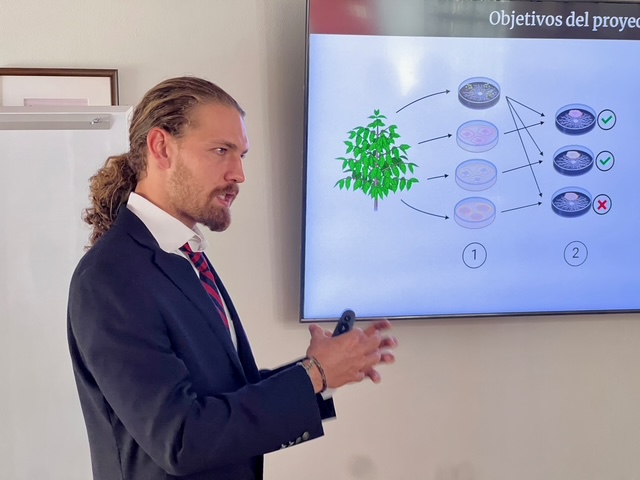
Those lessons took root. From July 2024 to May 2025, Yaeger was on a Fulbright research grant in Tingo María, Peru, conducting full-time research on cacao diseases. Working at the Universidad Nacional Agraria de la Selva, he isolated wild yeast strains that may act as natural antifungal agents to protect cacao crops—a critical livelihood for many rural Peruvian communities.
“I’m running what I like to call microbial cage matches,” he says, explaining how he pits naturally occurring yeast against disease-causing fungi in petri dishes. “When the yeast wins, we know we might have something worth developing into a bio-pesticide.”
Outside the lab, Yaeger is still chasing mushrooms. On weekends, he hikes into the jungle, photographing and collecting samples of wild fungi, many of which have never been cataloged in Peru. Working with local mycologists, he’s contributed to the identification of many species previously unknown to the region, and he hopes to document 1,000 varieties before returning to the U.S.
In April 2025, Yaeger found out that his commitment to applied biological research had earned him one of the country’s most prestigious honors: the National Science Foundation’s Graduate Research Fellowship, which provides awardees with three years of full funding toward a graduate degree. In Fall 2025, he’ll begin a Ph.D. in Ecology & Evolution at the University of Chicago, focusing on plant evolutionary genetics. His next research goal is to understand how natural plant populations adapt in response to human-induced environmental changes like rising temperatures and the presence of toxic chemicals, work that he believes will have important applications in agriculture and conservation.
Over the past few years, Yaeger has already made significant scholarly contributions. He presented research on cacao-associated yeast strains and their antifungal potential at the 2025 Brazilian Congress of Plant Pathology. Earlier, he shared his work on QTL mapping in Saccharomyces hybrids at the 2024 Genetics Society of America Fungal Genetics Conference. As part of his work with GRO Mushrooms, he co-authored two papers presented at the IEEE Global Humanitarian Technology Conference in 2022, one on modular mushroom cultivation systems in low-resource settings, and another exploring the potential of micronutrient-fortified drinks. These publications reflect both the depth and breadth of his scientific curiosity and his drive to address real-world challenges through original research and social enterprise.
These experiences are only the beginning of his aspiration to become a researcher and professor, making discoveries that will reach, thread-like, down to future generations, a true Future Maker, whose journey began at Lehigh with the real solutions and communities he encountered through the Global Social Impact Fellowship.
“The GSIF experience planted a seed that changed my perspective,” he reflects. “It showed me how science can serve communities, not just generate knowledge.”
“Students like Yaeger reflect the very heart of Lehigh’s mission—innovative thinkers committed to meaningful change,” says Khanjan Mehta, vice provost for Creative Inquiry. “Our Impact Fellowships are cultivating the next generation of scholars and FutureMakers—individuals ready to lead with integrity, curiosity, and a deep sense of purpose to create real impact in the world.”
Ultimately, Yaeger’s journey illustrates a passion for fungi that transformed into real solutions for real people—and a purposeful, enduring path in the world.

